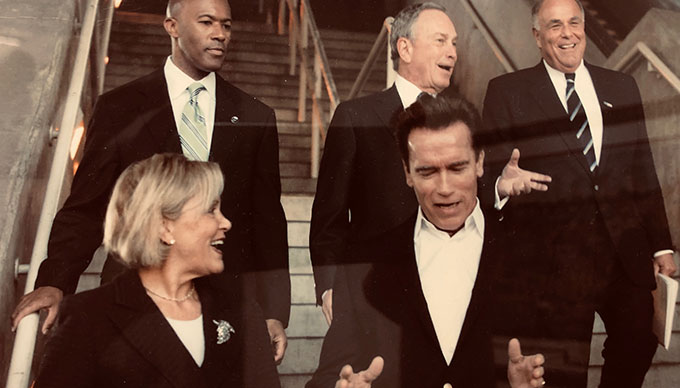Philanthropy can afford to take risks that other sectors cannot. While politicians focus on the next election, and businesses measure their success by the next earnings report, philanthropists are privileged to take the long view.
That gives philanthropic capital a distinct advantage at making an impact, particularly in times of transformation. Throughout her tenure leading the Rockefeller Foundation, Dr. Rodin and her team leveraged philanthropy’s competitive advantage at four kinds of work:
- Innovation: Creating new markets, organizations, products, and processes.
- Influence: Informing public policy with cutting-edge research and ideas.
- Intervention: Breaking bottlenecks, taking advantage of tipping points, and forging dynamic alliances for action.
- Impact: Testing pilot projects, building and growing systems-changing initiatives, and working with partners to bring them to full scale.
Today, Dr. Rodin is focusing on strategy, innovation, and risk management in philanthropy. Her approach calls on philanthropists to examine the system(s) in which they work, leverage strategic partnerships, and gather feedback through rigorous measurement.
Globalization is changing both our problems and our capacities to solve them. To sustain impact over the long term, philanthropists have to keep innovating, homing in on what works while seeking out new ways of working.
To travel the distance from idea to innovation to impact, philanthropists have to take risks. Unfortunately, the same glitch often emerges in the grantmaking process: the absence of intentional risk assessment and management. Without accounting and planning for so many of the contingencies that face grantees, philanthropic foundations undercut their results and cost their funders millions of dollars.
In partnership with the Open Road Alliance, Dr. Rodin is working to help funders and grantees have more accurate assessments, more open conversations, and more realistic plans in place upfront. Their joint effort produced a first-of-its-kind Risk Management Toolkit—ten user-friendly tools to help funders calculate risk profiles, create practical contingency plans, evaluate progress, and learn from their experience

